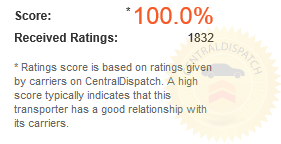Whether you’re a long-time resident or new to the Last Frontier, purchasing a vehicle in Alaska presents unique considerations that set it apart from car buying in other states. The combination of extreme weather conditions, remote locations, and distinct regulations makes the car-buying process in Alaska an experience that requires careful planning and local knowledge. This comprehensive guide will explain everything you need to know about buying a car in Alaska, from understanding the local market to finalizing your purchase.
Related: Be Careful While Shipping Your Car to or From Alaska
What’s Different About Buying a Car in Alaska?
Unique Challenges of Buying Cars in Alaska
Alaska’s vast geography and limited transportation infrastructure create distinct challenges in the car-buying process. The state’s relatively small population means a more limited selection of vehicles available locally, often resulting in higher prices compared to the continental United States. Many Alaskans find themselves looking to the lower 48 states for better vehicle options and competitive pricing. The remote nature of many Alaskan communities means that buyers often need to factor in additional travel time or shipping costs when purchasing a vehicle from another city or state.
Shipping your vehicle to Alaska? Read our guide on preparing your car to ship.
Popular Vehicle Types for Alaska’s Climate
Alaska’s harsh climate and rugged terrain demand vehicles that can handle extreme conditions. Four-wheel drive and all-wheel drive vehicles dominate the market, with SUVs and trucks being particularly popular choices. Models like the Subaru Outback, Toyota 4Runner, and Ford F-150 are common sights on Alaskan roads, praised for their reliability in snow and ice.
Vehicle features such as engine block heaters, winter-rated tires, and robust heating systems are not just luxuries but necessities for many Alaskan drivers. When selecting a vehicle, buyers should prioritize ground clearance, winter performance capabilities, and proven cold-weather reliability.
What’s the Best Time to Buy a Car in Alaska?
The timing of your car purchase in Alaska can significantly impact both availability and pricing. During the summer months, demand typically increases as tourists and seasonal workers arrive, potentially driving up prices. However, winter can present excellent buying opportunities, as dealers often offer incentives to move inventory during slower sales periods.
The best time to buy generally falls between October and December, when dealers are eager to clear out current-year models and meet end-of-year sales targets. Additionally, watching for special holiday sales events around Memorial Day, Labor Day, and Black Friday can yield substantial savings.
Essential Steps for Purchasing a Vehicle in Alaska
Required Documentation and Registration Process
The vehicle registration process in Alaska requires several key documents. Buyers must present a valid government-issued ID, proof of insurance meeting Alaska’s minimum requirements, and the vehicle’s title properly signed by all parties. For new vehicles, you’ll need the Manufacturer’s Statement of Origin (MSO).
Alaska requires vehicles to be registered within 10 days of purchase, and registration must be renewed annually. If you’re bringing a vehicle from out of state, you’ll need to complete a vehicle inspection and obtain an Alaska title within 30 days of establishing residency.
Alaska DMV Guidelines and Regulations
Alaska’s Division of Motor Vehicles (DMV) maintains specific guidelines for vehicle purchases and registrations. All vehicles must pass safety requirements, including proper functioning lights, brakes, and windshield wipers. Emissions testing is not required in Alaska, unlike many other states.
The DMV requires temporary permits for vehicles being driven before registration is complete, and these can be obtained directly from DMV offices or through participating dealers. Special considerations apply for custom vehicles, modified trucks, and off-road vehicles, which may require additional documentation or inspections.
Understanding Alaska Sales Tax and Fees
One advantage of buying a car in Alaska is the absence of state sales tax, though some municipalities may charge local sales tax. However, buyers should be prepared for other fees, including title transfer fees, registration fees, and fees for license plates. Registration fees are based on the vehicle’s age and type, with newer vehicles typically costing more to register.
Some remote communities may also charge additional taxes or fees for vehicles brought into their jurisdiction. When planning your purchase, it’s important to factor these costs into your budget.
Tips for Smart Car Shopping in Anchorage and Beyond
Working with Alaska Car Dealerships
Establishing a good relationship with local dealerships can be valuable in Alaska’s unique market. Dealerships in major cities like Anchorage, Fairbanks, and Juneau often have the widest selection of vehicles and can assist with financing options. Many dealers maintain relationships with shipping companies and can help coordinate vehicle transport from other states. When working with dealers, be sure to research their reputation, ask about their winterization services, and inquire about their ability to service the vehicle post-purchase, particularly if you live in a remote area.
Private Party Sales in Alaska
Private owner sales are common in Alaska and can often provide good value, particularly for used vehicles already adapted to local conditions. When considering a private sale, thorough inspection is crucial. Look for signs of rust from road salt, check the vehicle’s cold-weather starting capability, and verify all winterization modifications.
Always verify the odometer reading matches the documentation and ask the previous owner about the vehicle’s maintenance history, particularly regarding winter-specific maintenance. Before finalizing any purchase, take the vehicle for a thorough test drive in conditions similar to your typical driving needs — this is especially important in Alaska where weather and road conditions can vary dramatically.
Always obtain a vehicle history report and consider having a trusted mechanic perform a pre-purchase inspection. Private sales require careful attention to paperwork, including bills of sale and title transfer documents.
Navigating Auto Financing Options
Financing a vehicle purchase in Alaska may differ from other states due to the unique market conditions. Local credit unions often offer competitive rates and understand the local market’s nuances. When applying for financing, be prepared to show proof of income and residence, particularly if you’re new to the state. Some lenders may have specific requirements for vehicles being shipped from out of state or require additional insurance coverage. Compare offers from multiple lenders and consider pre-approval to strengthen your negotiating position.
Ship Your New Car to Alaska With Alaska Car Transport
When you’ve found the perfect vehicle in the lower 48 states, Alaska Car Transport provides reliable, efficient shipping services to safely transport your car to Alaska. Our extensive experience with Alaska routes, weekly sailing schedules, and comprehensive door-to-door service ensures a smooth transition for your new vehicle. We offer both open and enclosed carrier options, real-time shipment tracking, and specialized handling for all vehicle types, making us the trusted choice for Alaska car transport.
Ready to bring your new car to Alaska? Calculate your instant shipping quote online or contact our team to discuss your specific transportation needs.
Frequently Asked Questions
Can I buy a car from another state and ship it to Alaska?
Yes, many Alaskans purchase vehicles from other states and have them shipped. This often provides access to better prices and wider selection. Professional auto transport services can coordinate the shipping process, handling all logistics from pickup to delivery in Alaska.
How long does it take to register a car in Alaska?
Vehicle registration in Alaska typically takes 1-2 business days if all required documentation is in order. New residents must register their vehicles within 30 days of establishing residency, and all purchases must be registered within 10 days of the sale date.
What documents do I need to buy a car in Alaska?
To purchase a car in Alaska, you’ll need a valid government-issued ID, proof of insurance meeting state minimums, and funds for the purchase and associated fees. For registration, you’ll need the title or MSO, bill of sale, and current insurance documentation.
What factors should I consider when budgeting for a car purchase in Alaska?
When budgeting for a car purchase in Alaska, consider expenses beyond the vehicle’s purchase price. These include registration and title fees, potential local municipal taxes (though there’s no state sales tax), and winterization costs if the vehicle needs modifications for Alaska’s climate. If buying from out of state, factor in transportation costs and any required inspections. Additionally, budget for appropriate insurance coverage, winter tires, and regular maintenance specific to cold-weather driving. Remote locations may also incur higher maintenance costs and fuel prices.


